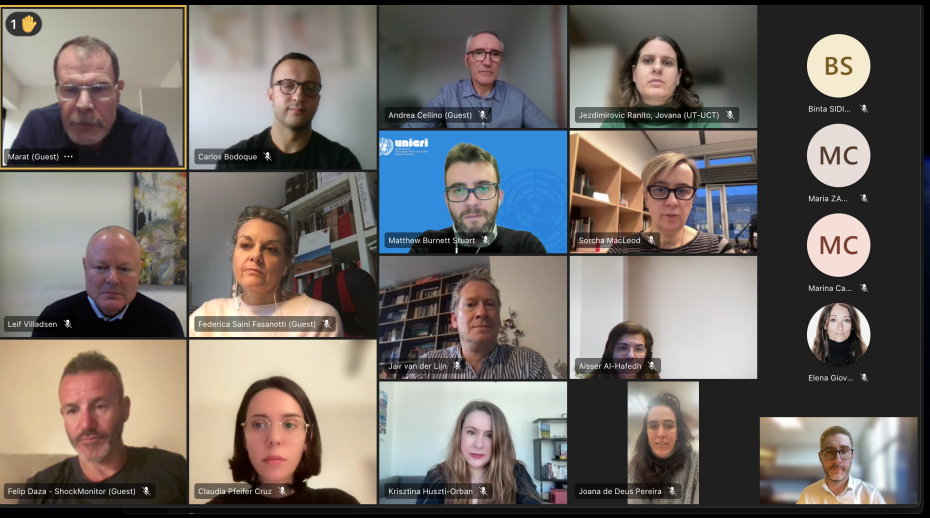
On 14 February, SIPRI co-convened a roundtable with the United Nations Interregional Crime and Justice Research Institute (UNICRI) on the relationship between private military companies, crime and terrorism, and the overarching effects of these relationships on peace and security.
The virtual meeting brought together various stakeholders to discuss the evolving dynamics of private military companies. Stakeholders included security and defence experts, counterterrorism and law enforcement professionals, representatives of governments, international and regional organizations and civil society, academics, and researchers specializing in armed conflict.
Current research efforts and forthcoming joint report
This meeting was one activity within a larger research effort conducted jointly by SIPRI and UNICRI. The insights gathered from this research, and from this meeting, will inform a joint report that will investigate the role of private military companies in armed conflict; their relationships with criminal organizations; and the overall impact on international peace and security. The joint report will also propose strategies for addressing the challenges posed by private military companies and for enhancing global coordination efforts.
For editors
Private military companies often operate outside traditional military accountability mechanisms. Operating in this manner blurs the lines about who is accountable for a military operation and also raises concerns about human rights abuses. Examples of private military companies that have been involved in conflict include: Asociatia RALF in the Democratic Republic of the Congo; the Dyck Advisory Group in Mozambique; Executive Outcomes in Angola and Sierra Leone; and the Wagner Group in multiple countries.
Click here to read more.